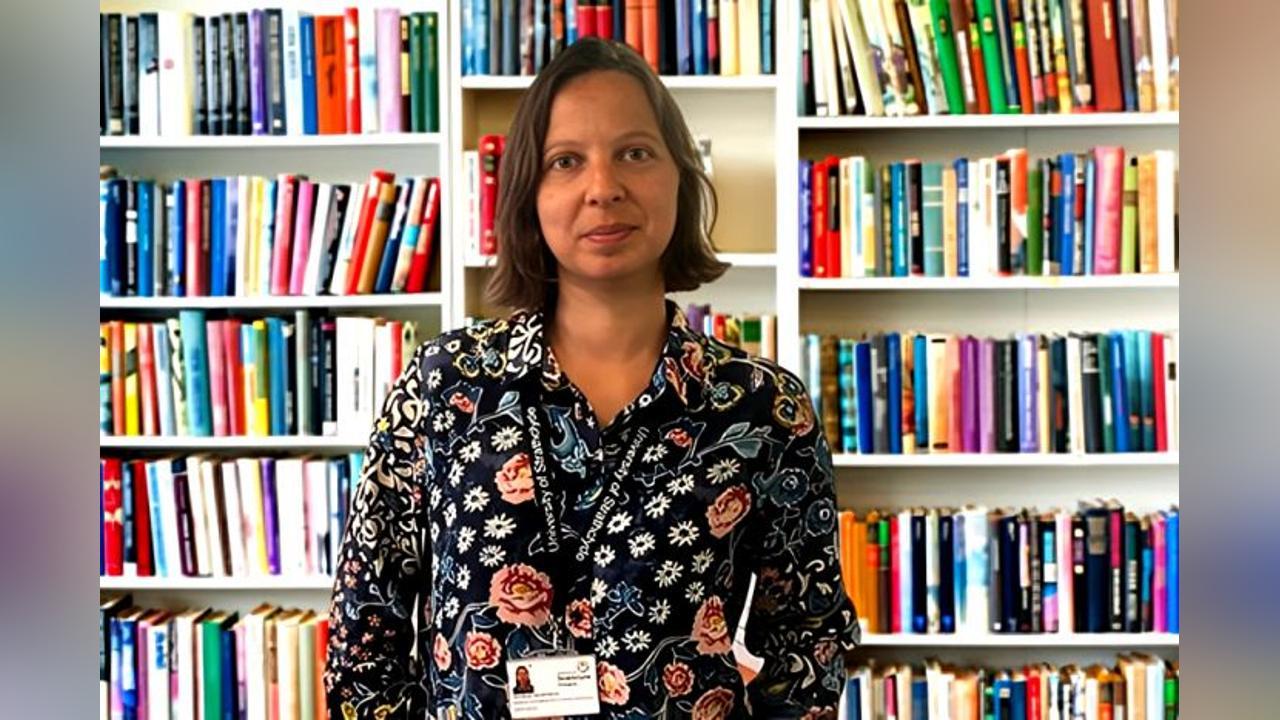Africa-Press – Angola. University professor Natalia Telepneva, a specialist in the history of the Soviet Union and the Cold War in Africa, argues that, at the time of the April 25, 1974, revolution, the MPLA “had neither funds nor weapons” due to the cut in Soviet support.
According to the historian, the reason for the suspension of Soviet aid was “a complicated relationship” between the leader of the Popular Movement for the Liberation of Angola (MPLA) and the first Angolan President, Agostinho Neto, and the Soviets, due to internal conflicts in 1973 and 1974 within that liberation movement.
“The Soviets didn’t like this conflict and cut off aid to the MPLA. That’s why when the coup d’état took place in Portugal, the MPLA actually had neither funds nor weapons.
Therefore, they had to rebuild their relationship with the Soviet Union and, in fact, strengthen their relationship with the Portuguese Communist Party and the MFA, the Armed Forces Movement, to renew the Soviet commitment with funds and weapons,” he emphasizes, in an interview with Lusa.
Natalia Telepneva, who teaches International History at the University of Strathclyde in Glasgow, Scotland, is the author of “Liberation and the Cold War.
The Soviet Union and the Collapse of the Portuguese Empire in Africa (1961-1975)”, which analyzes Soviet support for anti-colonial movements in Angola, Mozambique and Guinea-Bissau, and whose Portuguese version (Imprensa da História Contemporânea da NOVA FCSH) was launched on Thursday in Lisbon.
When asked about Soviet support for Nito Alves, when he was accused of an alleged coup attempt on May 27, 1977, by Agostinho Neto and most of the MPLA’s leadership, Natalia Telepneva emphasizes that it is “a complicated story.”
“And we don’t fully understand the story. In fact, the Cubans absolutely sided with Agostinho Neto (…). The Soviets were much more conflicted, because, in fact, Nito Alves had been in the Soviet Union before that and was a defender of scientific socialism, Soviet-style scientific socialism,” he adds.
The historian is convinced that “some [Soviet] military advisors in Luanda actually supported Nito Alves or sympathized with him”, which left the MPLA government “very unhappy”.
“But the full story is still unclear. The Russian archives have only just declassified some of these files, but I think we will know more very soon,” he adds, noting that the archives of the former KGB national security service, now the FSB, and the Russian military departments have not yet been declassified. In “Liberation and the Cold War.
The Soviet Union and the Collapse of the Portuguese Empire in Africa (1961-1975)”, Natalia Telepneva studies the African revolutionaries who led armed struggles in three Portuguese colonies — Angola, Mozambique and Guinea-Bissau — and their connections to Moscow, Prague, East Berlin and Sofia.
From a contemporary perspective, Natalia Telepneva argues that, under Vladimir Putin’s leadership, Russia has attempted to return to Africa in various ways, using military and security cooperation as a starting point for creating new partnerships.
When asked how long the “honeymoon” will last between Moscow and the newly emerging coup powers in West Africa, given that the fight against Islamic fundamentalism is far from successful, she begins by responding that it is the “million-dollar” question.
“It’s very difficult to answer, because even in the Soviet period, the Soviets started out very optimistic about what they could achieve in Africa, starting with [Niquita] Khrushchev [General Secretary of the Communist Party of the Soviet Union from 1953 to 1964 and Chairman of the Council of Ministers from 1958 to 1964], the socialist revolution, but then disillusionment followed very quickly, when socialism didn’t take off,” he says.
Natalia Telepneva recalls that “even relations with liberation movements, such as the MPLA or Frelimo, were often complicated,” because “Moscow had many concerns about China and Yugoslavia.” “Even at that time, there were many debates, many conflicts.
And, of course, when we talk about the current situation, especially in West Africa, there are many anti-French sentiments,” which are being exploited, including by Russia, to offer an alternative, she emphasizes. Regarding analysts’ claims that Vladimir Putin intends to revive the concept of imperial Russia, the author argues in the book that, in the past, ideology was important, but today, economic interests prevail.
“[Ideology] played an important role, especially for mid-level Soviet bureaucrats who were actively involved in supporting liberation movements within the Central Committee. So I think their Marxist worldview shaped how they viewed the various liberation movements. And they were also involved, in many ways, in African liberation.”
“If we’re trying to draw parallels with today, I think it’s more complicated, because (…) Marxist-Leninist ideology no longer exists. In recent years, several actors have been involved in Russia’s return, I would say, to Africa.
Many of them are increasingly tied to the state. I would say that commercial interests are really important, economic interests are really important now,” he explains.
The persistence of “some legacies from the Soviet period” and, “in some quarters, (…) the image of the Soviet Union, of Russia, as a supporter of national liberation, (…) gives Russia some credibility with some African leaders,” he emphasizes. “If we’re talking about the current situation, it seems that China is taking the lead.
And even in the 1960s, the Chinese were careful to show great respect to African leaders, who were typically received with a very high level, despite not being heads of state. What we know now is not new. It’s clear that the level of engagement has increased,” he adds.
For Natalia Telepneva, at the moment, “the Chinese seem to be at the forefront, because they combine central planning with capitalism in a way that, obviously, captures markets, but also allows them to maintain themselves in the long term, because Western companies are interested in current costs and business.
China has a much longer-term vision, (…) even if it is not immediately profitable”, he concludes.
For More News And Analysis About Angola Follow Africa-Press






